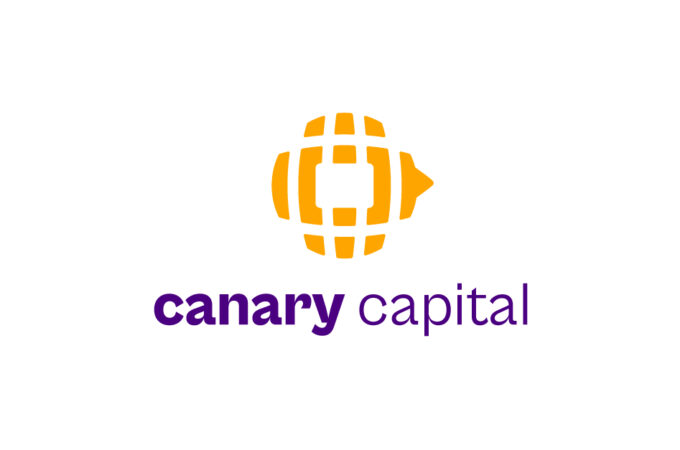
How Fintech Revolutionizes Asset Management
Asset management in the finance industry has come a long way, and the rise of fintech has changed the game for everyone. With technology, asset management is becoming more accessible, efficient, and cost-effective.
As the world becomes increasingly digital, many look for ways to manage their assets online, which is why this article will explore how fintech is revolutionizing asset management. Continue reading to know more.
Robo-advisors
Robo-advisors are a digital investment platform that uses algorithms to manage investments automatically. They offer low fees, 24/7 availability, and require no human interaction, making them an excellent option for those aiming to manage their assets without much involvement.
As of now, they’re competing with traditional advisors. Their most significant advantage is their accessibility because of their low price point and online nature. It makes wealth management available to everyone, often an exclusive service only high-net-worth individuals can access.
Data Analytics
Nowadays, data is power. Most companies and individuals can make accurate predictions and sound decisions using big data. And fintech isn’t a stranger when it comes to reaping the benefits of big data and data analytics.
Fintech is leveraging data analytics to enhance asset management by analyzing market trends, investor behavior, and risk factors, making it easier to make informed investment decisions. This technology also makes it easier for asset managers to tailor their services to individual clients.
Blockchain
You may have already heard about cryptocurrency and blockchain. Most see this technology as a high-risk–high-reward when it comes to investments. However, blockchain has a lot to offer aside from cryptocurrency.
Blockchain technology is revolutionizing asset management by allowing for secure and transparent transactions. It enables investors to trade assets without intermediaries, significantly reducing transaction fees and settlement times.
Blockchain ‘protects’ a person’s assets by providing a secure and tamper-proof platform for recording transactions, eliminating the need for third-party institutions and organizations such as banks or brokers. And because fewer entities are involved in the transaction, the lesser the chance that an account or the transactions under it may be maliciously accessed and hijacked.
Artificial Intelligence
Many people globally are in awe of the power demonstrated by the recently publicized AIs. And for a few months, they have become popular, to the point that some even feared that these computer programs could replace human beings. After all, they are more than chatbots now. And AI’s powers have been proven capable of doing other things besides giving social companionship.
Artificial intelligence can be a game-changer regarding asset management as it can provide insights into investment opportunities, manage risks, and create personalized investment portfolios. It also helps to automate many administrative tasks, freeing time for asset managers to focus on more critical tasks.
Mobile Apps
Most of the tech in fintech won’t be entirely feasible without mobile apps and smartphones. After all, these apps are the gateway for users to access banking and investing services nowadays. Some major banks and companies are battling to have the best mobile app for digital wallets.
Also, mobile apps provide investors an easy way to monitor their investments and manage their portfolios. They offer real-time market updates, trading, and portfolio management features that make it easier for investors to stay on top of their investments.

Crowdfunding
Crowdsourcing has been revolutionized by the internet, resulting in the creation of crowdfunding. While there are other ways to fund people through the internet, crowdfunding using crowdfunding platforms has been one of the most successful forms.
Crowdfunding platforms enable investors to access alternative investments that were once only available to high-net-worth individuals. They democratize asset management, allowing everyone to invest in venture capital, private equity, and real estate.
Social Media
Surely, you’re already familiar with how powerful social media is. It can connect businesses to consumers, partners, and even potential investors. People can use social media to market and manage brand reputation. And its potential is endless.
Social media platforms provide investors access to real-time news and market updates, making staying informed about investment opportunities easier. It also enables asset managers to connect with clients and potential investors, creating more significant opportunities for growth.
Digital Identity Verification
Nowadays, it can be too difficult for people to fake identities. And this is because of digital identity verification.
Digital identity verification is making asset management more secure and efficient by verifying the identity of investors quickly and easily. This technology ensures that investors are who they claim to be, reducing the risk of fraud and increasing investor confidence.
Multi-factor Authentication, Biometrics, And Security Algorithms
Multi-factor authentication and biometrics help to prevent unauthorized access to investment accounts and ensure that only authorized individuals can access sensitive information. When combined with digital identity verification, it becomes more difficult for malicious individuals to access another person’s assets—making it much more secure to transact with financial entities nowadays.
Aside from those measures, many fintech companies are now employing algorithms to safeguard the assets and accounts of people further. These algorithms keep track of a client’s behavior and predict when a different person is using the client’s account. Basically, this defends someone against fraudulent transactions and other malicious activities of bad actors.
Socially Responsible Investing
Fintech has revolutionized how socially responsible investing (SRI) is practiced and incorporated into asset management. Fintech companies have developed new tools and platforms that enable investors to evaluate companies based on their ESG (Environmental, Social, and Governance) performance, allowing them to make more informed investment decisions that align with their values.
In simple terms, fintech has made it easier for people to invest in companies that care for the environment and monitor how their assets and investments impact the world. This also allowed the prominence of exchange-traded funds (ETFs) and mutual funds, focusing specifically on socially responsible investing.
Conclusion
Fintech is revolutionizing asset management by making it more accessible, efficient, and cost-effective. With technologies such as robo-advisors, data analytics, blockchain, artificial intelligence, mobile apps, crowdfunding, social media, and more, asset management is becoming more democratized, transparent, and secure.
If you want to experience all the benefits of these innovative technologies and revolutionize your asset management strategies, consider exploring fintech platforms that cater to your investment goals and preferences.



